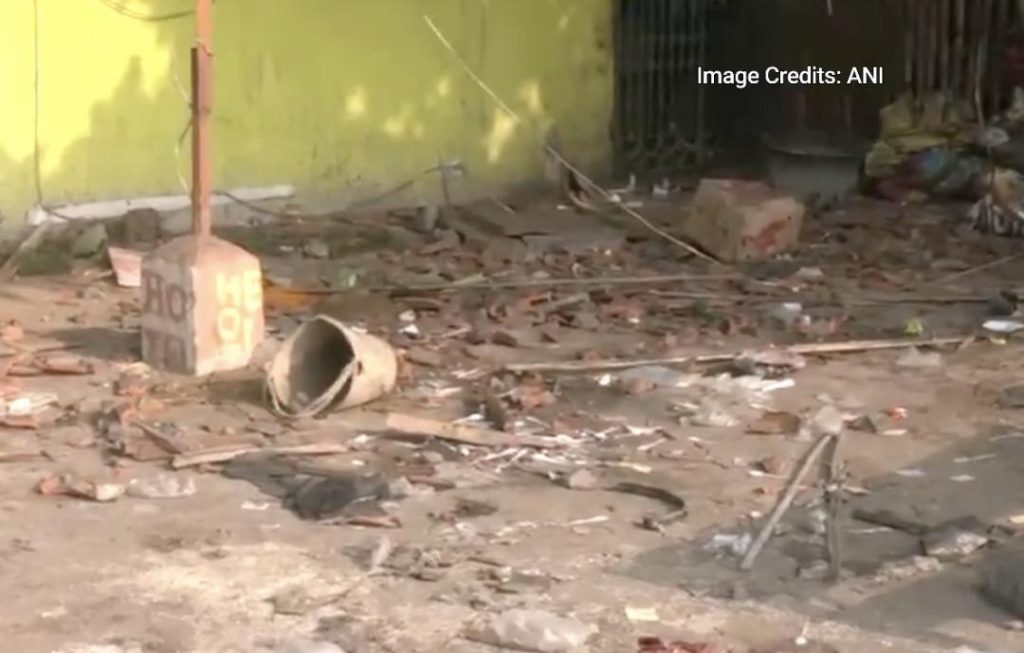
5,000 Disrupt Services & Pelt Stones at Bengal Railway Station during Protest against Waqf Act
In a shocking incident, nearly 5,000 people gathered at the Dhulianganga railway station in West Bengal, disrupting train services and pelting stones at the station. The protest, which took place on Friday, was against the recently passed Waqf Act, a law that aims to regulate and manage mosques, imams, and other religious institutions.
The Eastern Railways reported that the protest started around 1 pm, with the mob blocking the tracks and preventing the Kamakhya-Puri Express from moving. The incident resulted in significant disruptions to train services, causing inconvenience to passengers and affecting the movement of trains in the area.
A guard at the station described the scene, saying that the mob had gathered on the tracks and started throwing stones. “Many things were destroyed, and the signal couldn’t be passed,” he added, highlighting the chaos and destruction caused by the protesters.
The incident is a stark reminder of the tensions surrounding the Waqf Act, which has been met with widespread protests and criticisms from various quarters. The law, which was passed by the West Bengal government in October, aims to provide a framework for the management and maintenance of mosques and other religious institutions. However, many have raised concerns about the law’s implications on religious freedom and the autonomy of religious institutions.
The protest at the Dhulianganga railway station was a manifestation of the growing discontent among the religious community, who feel that the law infringes on their rights and freedoms. The protesters, who were primarily from the Muslim community, demanded that the law be repealed and that the government respect their religious beliefs and practices.
The incident has raised concerns about law and order in the state, with many questioning the ability of the authorities to maintain public order. The East Bengal Railway authorities have promised to take strict action against those responsible for the disruption, but the incident highlights the need for more effective measures to prevent such incidents in the future.
In the aftermath of the protest, the West Bengal government has come under intense scrutiny, with many calling for a review of the Waqf Act. The opposition parties have also joined the chorus, demanding that the government take immediate action to address the concerns of the religious community and ensure that the law is not misused.
The incident has also sparked widespread debate about the role of religion in public life and the need for greater understanding and respect between different communities. Many have called for a more inclusive and pluralistic approach to governance, where the rights and freedoms of all citizens are respected and protected.
As the situation continues to unfold, it is clear that the protest at the Dhulianganga railway station is just the beginning of a larger movement against the Waqf Act. The incident highlights the need for greater dialogue and understanding between the government and the religious community, and for more effective measures to prevent such incidents in the future.






